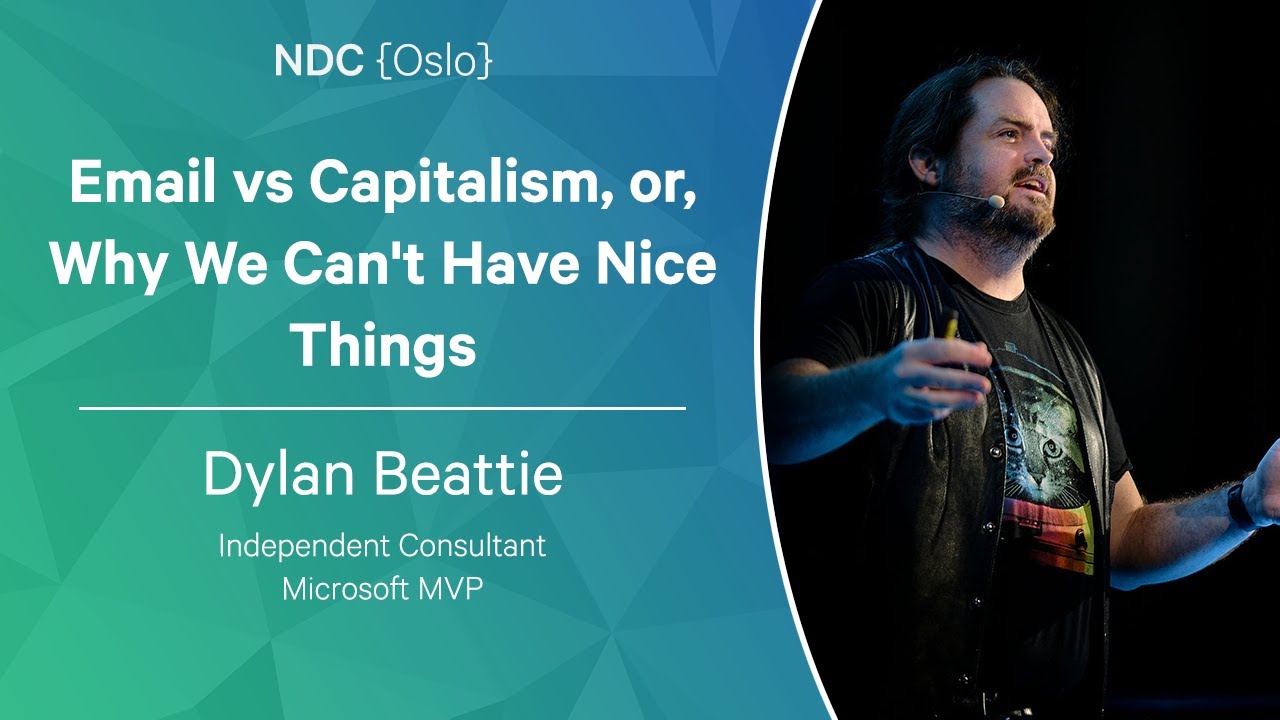- cross-posted to:
- fediverse@kbin.social
- cross-posted to:
- fediverse@kbin.social
This is a presentation about the historic evolution of email, how implementations gradually diverged from the specification given corporate forces, the onset of spam with the prevalence of personal computing, the erosion of distributed delivery networks of mail due to fast/lazy/loose whitelists, the ossification of the protocol compounded with decades of backwards compatibility, and the modern tools used to navigate the bazaar of format compliance as it continues to evolve as a moving target. Nevertheless, the conclusion remarks about emails notably resilience to centralisation and enshittification.
I hope that protocols such as ActivityPub will fair just as well, if not better, than email. Although, I’d hazard a guess that the forces of monetization and dark patterns are now much more prevalent than they were in email’s infancy.
This also ties well into @canpolat@programming.dev 's recent post yesterday, about validating or verifying emails. Check this timestamp and yesterday’s post:
Thanks for sharing this talk. I watched it a few day ago and thought of sharing, but then forgot about it. As pointed out in the video description: “Email is too big to change, too broken to fix… and too important to ignore.” The bit about the first marketing email was interesting (video timestamp) and is relevant for our times.
Email is too big to change, too broken to fix… and too important to ignore.
That is such a great quote! Here is my attempt at such a quip:
Email’s own complexity, legacy, and backwards compatibility divines its own Incorruptibility.
This was a fascinating watch! Thanks for sharing.
deleted by creator
I haven’t watched the video because it’s a awkwardly bloated format to consume for something as straight-forward as presenting an idea.
No worries, for some with visual impairments, auditory formats are easier to consume. I wish historic write-ups and technical blogs had better support for screen readers, but many authors have a tendency to use unnecessary embeddings without captions or alt-texts. Good oratores are fine to listen to, even if I don’t always see the slides.
However, I don’t think the way this was phrased is honest and objective. It makes it sound as if evil corporations conspired to spread evil over something that was good and pure.
Eh, that summarization was merely written in the literal sence of corporate decision making and economic forces of the market, no deeper meaning ¯\_(ツ)_/¯ . While corporat conspiracies occur on occasion (think Enron or High-Tech Employee Antitrust Litigations), I think anthropomorphizing large institutions by attributing them with emotions or morals would be naive, e.g: Dangers of anthropomorphizing Oracle. And while the speaker did titled their talk using the contextual phrase “vs Capitalism”, the talk itself is hardly a criticism on business.
Legal recourse is also not possible as bad actors hide behind permissive jurisdictions that serve as safe havens for criminal and abusive actions. If anything, the “corporate forces” were instrumental in eliminating all of these problems, and turned email from an unusable and fundamentally broken technology into a highly reliable and trustable global infrastructure.
Agreed. For what it’s worth, that is the same observation of jurisdiction, regulation, and innovations that were presented by the speaker. The speaker discussed how email hosting providers, corporations such as Google, deviated from the original specification as needed to counter fraud and human errors, such as refusing to treat addressed emails with varying insertions of periods as separate users, preventing the practice of typo namespace squatting.
Perhaps irrelevant to email thanks to ASCII limitations, but another example of implementations justifiably deviating from the generality of original specifications could be Lemmy itself, as the ActivityPub standard doesn’t seem to forbid the use of invisible characters within usernames, a common practice for enabling impersonation on many communication platforms:




